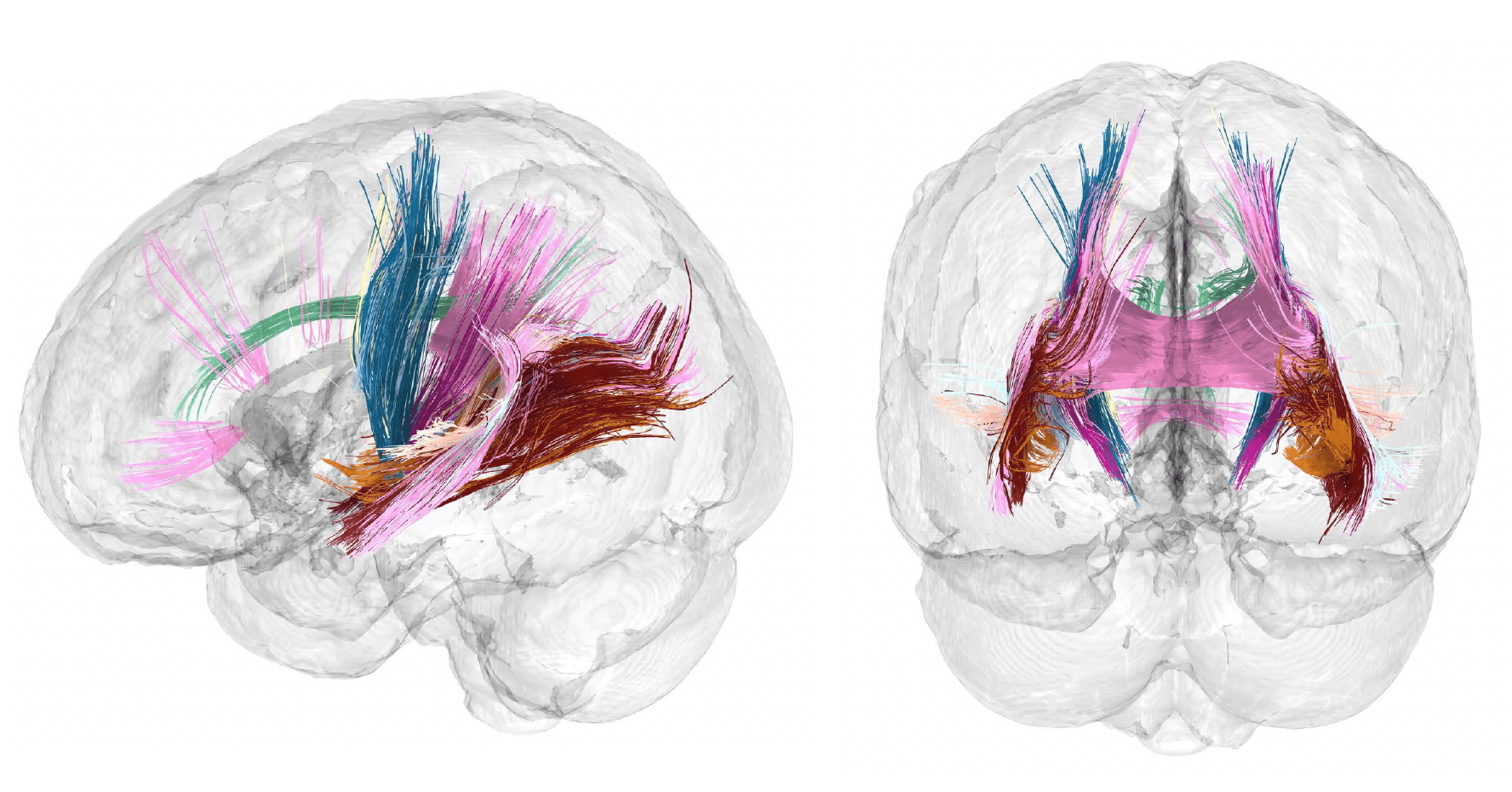Imaging study details changes in a woman's brain during and after pregnancy
A study describes changes in a woman's brain during and after pregnancy, including a ‘pronounced’ decrease in grey matter volume and cortical thickness, and an increase in ventricular volume and cerebrospinal fluid. Some of the changes are maintained in the postpartum period; others reverse within months. The team performed 26 MRI scans and blood tests on one mother, from pre-conception until two years postpartum, and publish the results in Nature Neurology.

Major white matter tracts demonstrated increasing microstructural integrity over pregnancy. Credit: Daniela Cossio.
240916 cerebro embarazo susana EN
Susana Carmona Cañabate
Principal investigator of the Neuromaternal research group
[The methods] are not only robust but also innovative, as they use a methodology (dense-sampling) that allows for very good temporal resolution, i.e. very precise tracing of highly time-varying phenomena.
The entire trajectory of changes in cortical thickness [described] matches perfectly with previous studies. Moreover, it brings together, for the first time, data and measures from before, during and after-pregnancy - not only cortical thickness, but also data on the integrity of the white matter and hippocampus.
It is true that such [research] designs gain statistical power from the number of time points, sessions, rather than the number of subjects. The way forward now is to evaluate this phenomenon in a larger number of subjects in order to see how these changes are related to factors that show a high variability between subjects: type of birth, breastfeeding, depressive symptoms, socioeconomic status, maternity leave, etc...
Undoubtedly, this and other studies focused on characterising brain changes in pregnant women can help us to understand, predict and prevent postpartum mental health conditions, among other phenomena. But we are still far from making specific recommendations.
"I have no conflict of interest beyond working in the same field of study, therefore I know the work of these researchers well".
240916 cerebro embarazo óscar v EN
This is a relevant study that analyses brain and hormonal changes pre- and post.pregnancy for the first time, but it includes only one person. This makes it very difficult to draw conclusions and generalise the findings to the wider population, let alone to draw any practical consequences.
240916 cerebro embarazo magdalena EN
Magdalena Martínez García
Post-doctoral researcher in the Psychological & Brain Sciences department of the University of California, Santa Barbara (EE.UU.)
This study serves as proof of concept that precision imaging studies are able to detect the full dynamic range of brain changes that develop during the gestational period with unprecedented temporal resolution. The cerebral cortical findings align with those previously revealed by larger longitudinal cohort studies (Paternina et al, 2024) in first-time mothers, suggesting that pregnancy-induced brain changes may be a ubiquitous phenomenon.
"My only conflict of interest is that I am currently working in the lab that published this study (for four months now), although I am not a co-author".
Laura Pritschet et al.
- Research article
- Peer reviewed
- Non-randomized
- Observational study
- Case study
- People



